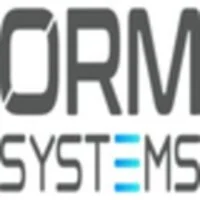
The picturesque province of Nova Scotia, where the rugged Atlantic coastline meets rolling hills and vibrant communities, emphasizes the importance of maintaining a healthy indoor environment. Central to this is the cleanliness of HVAC (Heating, Ventilation, and Air Conditioning) vents. This blog will look at the importance of HVAC Vent Cleaning in Nova Scotia, including how it affects indoor air quality, system efficiency, and overall well-being.
The Significance of Clean HVAC Vents
HVAC systems are vital in regulating the temperature and air quality in homes and businesses across Nova Scotia. However, these systems can accumulate dust, pollen, mold spores, and other airborne contaminants over time. If not properly maintained, these contaminants can circulate throughout a building, leading to poor indoor air quality. This is especially concerning in Nova Scotia, where the climate can cause residents to rely heavily on their HVAC systems, making regular vent cleaning not just a maintenance task, but a health necessity.
Understanding the Impact on Health and Efficiency
The implications of unclean HVAC vents are twofold. Firstly, there is a significant health aspect. Contaminants and allergens circulating in the air can exacerbate respiratory issues, allergies, and other health problems. This is particularly crucial in public spaces like schools, hospitals, and offices, where the health and well-being of many individuals are at stake. Secondly, there is the issue of efficiency. When HVAC vents are clogged, the system must work harder to circulate air, leading to increased energy consumption and higher utility bills.
Identifying the Need for HVAC Vent Cleaning
Recognizing when HVAC vents require cleaning is key to maintaining a healthy system. Some signs that indicate a need for professional cleaning include visible dust buildup around vent covers, musty odors, inconsistent airflow, and an unexplained increase in energy costs. In Nova Scotia, where environmental conditions can vary greatly, these signs may appear more frequently, necessitating a more regular cleaning schedule.
The Professional Cleaning Process
Inspection Phase
- System Assessment: Technicians begin with a thorough examination of the HVAC system, identifying specific areas that require cleaning and attention.
- Risk Evaluation: Safety checks are conducted to ensure that the cleaning process will be safe and effective.
Cleaning Phase
- Specialized Tools: High-powered vacuums and brushes are used to meticulously clean vents, ducts, and other components, removing dust, debris, and contaminants.
- Comprehensive Approach: The focus extends beyond just vents to include all parts of the HVAC system, ensuring a thorough cleaning.
- Targeted Cleaning: Particular attention is given to areas prone to dust accumulation and moisture, which can lead to mold growth.
Maintenance Advice
- Guidance Post-Cleaning: After cleaning, technicians provide tips on maintaining the system’s cleanliness and efficiency, including advice on filter changes and signs of potential issues.
- Customized Maintenance Plans: Recommendations for a tailored maintenance schedule are offered to keep the HVAC system in optimal condition.
Additional Considerations
- Eco-Friendly Practices: The cleaning adheres to environmental guidelines, emphasizing responsible disposal of debris and the use of eco-friendly products.
- Documentation and Follow-Up: A detailed report of the cleaning process is provided for record-keeping, with some services offering follow-up checks for sustained system efficiency.
Proactive Maintenance: A Key to Longevity
While professional cleaning is essential, regular maintenance can significantly extend the life of an HVAC system and improve indoor air quality. Simple steps such as routinely replacing air filters, ensuring vents are not blocked, and monitoring the overall performance of the system can prevent the accumulation of harmful contaminants.
Energy Efficiency and Environmental Considerations
In Nova Scotia, a province known for its natural beauty and environmental consciousness, energy efficiency is a critical consideration. Efficient HVAC systems contribute to reduced energy consumption, aligning with the province’s goals for sustainable living. Regular vent cleaning plays a significant role in maintaining this efficiency, making it an environmentally responsible practice for both homeowners and businesses.
Choosing the Right HVAC Vent Cleaning Service
Selecting the right service provider is crucial. It’s important to choose a company with experience and a good reputation in HVAC maintenance. The best providers offer comprehensive cleaning services and can give advice on maintaining the system post-cleaning.
The Broader Benefits for Nova Scotian Communities
The advantages of clean HVAC vents extend beyond individual homes and businesses. They contribute to the health and well-being of entire communities. In a province where public health and environmental stewardship are highly valued, regular HVAC vent cleaning is a practice that aligns with these community goals.
For additional insights and expert advice on HVAC maintenance and indoor air quality, Visit here for related post. Discover a wealth of information that can help you maintain a healthy and efficient living or working environment.
Conclusion
HVAC vent cleaning is a vital component of maintaining healthy indoor environments in Nova Scotia. It ensures not only the efficiency and longevity of HVAC systems but also significantly impacts indoor air quality and energy consumption. As residents and business owners in this dynamic province, prioritizing HVAC vent cleaning is not just a maintenance task but a commitment to health, efficiency, and environmental responsibility. By investing in regular HVAC vent maintenance, we contribute to the well-being of our communities and the sustainability of our beautiful province.











